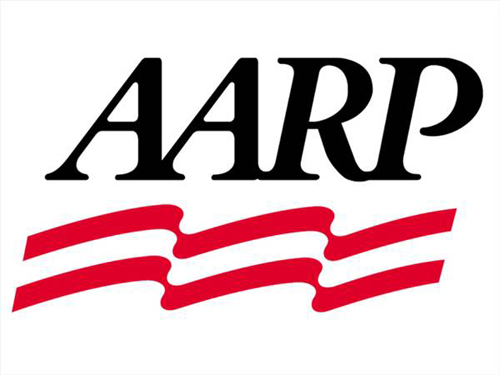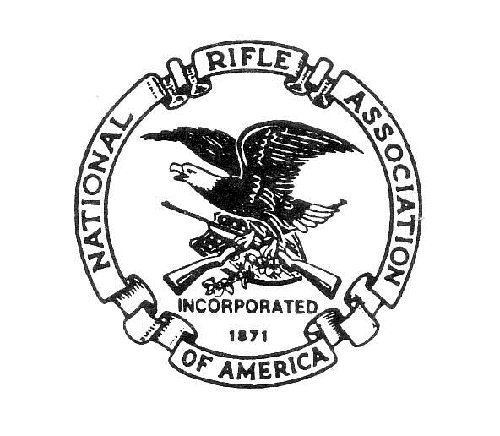Each year, lobbying groups in Washington spend billions of dollars trying to buy influence. Corporations, special-interest groups, unions, and single-interest groups like the NRA — all of them have poured money into efforts to shape laws and regulations to fit their interests. No doubt about it: most lobbies are forces to be reckoned with.
Despite numerous criticisms, lobbying in the US is protected under the First Amendment, which enshrined the right to petition the government. Recently, though, legislation was passed that forced lobbying organizations to be more transparent in their deals. Websites like the Center For Responsive Politics now track spending by industry, company, and individual groups. In the spirit of information sharing, we’ve compiled a list of some of the biggest lobbies in America, and the way they’ve affected politics.
The Tech Lobby

Over the past 15 years, the tech industry has become one of the big spenders in lobbying, doling out over $120 million in 2010. With the power of tech giants Google, Apple, Amazon, and Microsoft behind it, the computer and Internet lobby has a lot of weight to throw around. By weight, we mean money: In 2010, Microsoft alone spent over $6.9 million in federal lobbying efforts.
The tech lobby’s priorities include trying to lower corporate tax rates and pass cybersecurity legislation. In the last few years, tech industry heavy-hitters and activists have found themselves at odds with communication companies and governing bodies like the FCC over the issue of Net Neutrality. In the summer of 2010, Google brokered a deal with Verizon that seemed an abrupt about-face from its former stance. Meanwhile, the House has gridlocked a bill by the FCC that would regulate ISPs and give them authority to step into disputes; more evidence of the tech lobby, hard at work.
The Mining Industry

The mining lobby, particularly the coal industry, has had its fingers in American politics for a long time. In the late 19th and early 20th century, it was responsible for some of the most dramatic labor uprisings in history. More recently, it’s been trying to sell politicians and tax payers on the idea of “clean coal”, which supposedly reduces carbon emissions and other pollutants. Environmental advocacy groups are skeptical, to say the least, but mining lobbyists have spent nearly $100 million dollars in the last three years, ensuring that they have lawmakers’ ears. In addition, the mining lobby has attempted to sway lawmakers in regulating labor laws, worker safety, and environmental regulations.
The Defense Industry

Defense spending in America has reached an all time high. Since 1998, military spending has grown each consecutive year, particularly after the events of 9/11. The Pentagon, military contractors and lobbyists, and the war hawks the serve on arms committees form an Iron Triangle, a nearly impermeable and interlocking dynamic of bureaucracy, influence, and favors.
The heaviest hitters in the industry are Lockheed Martin, Boeing, and General Dynamics. Lockheed Martin alone received 7% of the funds that were paid out by the Pentagon, and has additional multi-million dollar contracts with the IRS, NSA, TSA, CIFA, FBI, the US Census, and the postal service.
Political analysts are predicting the end of growth in military spending, however. After nearly 10 years of involvement in Iraq and Afghanistan, and with worries over national and state budget deficits, Americans are war-weary and beginning to turn against the Iron Triangle of contractors, lawmakers, and lobbyists. The next few years will test whether the defense industry is as recession-proof as previously believed.
The Agribusiness Industry

Agribusiness lobbies represent a diverse collection of special-interest groups, including large food manufacturers like Kraft and Unilever, huge agricultural companies like Monsanto, tobacco companies such as Phillip Morris, biofuel producers like UNICA, and logging companies like International Paper and Weyerhauser. These companies spend upwards of $150 million each year, funding campaigns and pushing legislation through Congress.
Agribusiness lobbyists are responsible for holding up bills regulating food labeling, climate change, and biofuel production. In the last 10 years, they’ve pushed through legislation that undid much of the Clinton-era environmental efforts, powering down the EPA and amending bills such as the Clean Water Act to allow for greater industrial pollution.
Big Oil

The oil industry is in thick with lawmakers, nobody can argue with that. George W. Bush and his presidential cabinet had deep ties to different oil companies: Vice-President Cheney was the chief executive of Halliburton, Condoleeza Rice was a director of Chevron. In addition, Big Oil spends more on lobbying than any other group: nearly $150 million in 2010.
After the disastrous BP oil spill last spring, oil and gas lobbying came into sharp focus in the American media, especially as BP stepped up efforts to remake its tarnished image. Recently, the oil industry has been unveiled as a major funder of the Tea Party, which advocates less governmental intervention and regulation, and generally denies climate change; all of which suits the oil industry quite well.
The Financial Lobby

The banking and finance lobbies in America are working overtime to try and keep the free market as free as possible. Financial lobbies are far and away the biggest spenders on the Hill, contributing hundreds of millions of dollars to campaigns and political parties. Goldman Sachs alone donated over $2.6 million to various politicians and governing bodies. In return, financial institutions have been allowed free reign with other people’s money; they were responsible for the real estate bubble and the sub-prime mortgage of 2008, which contributed to the Great Recession. A senate committee on the financial crisis of the late 2000’s found that, “The crisis was not a natural disaster, but the result of high risk, complex financial products; undisclosed conflicts of interest; and the failure of regulators, the credit rating agencies, and the market itself to rein in the excesses of Wall Street.”
Since the market crash, banking lobbyists helped push through the financial bailout in 2008, but have spent the last three years digging their heels in against any push towards reforms.
Big Pharma

Along with the financial lobbies, the pharmaceutical and health products industries have historically been one of the biggest and most powerful lobbies in Washington. Drug companies enjoy more power and influence in America than with any other government in the world. Pfizer Inc, one of the major political contributors of the pharmaceutical industry, spent more than $25 million dollars in 2009, ensuring that the Obama administration’s health care reforms didn’t rock the boat overmuch. As it stands, drug companies stand to gain a huge increase in their already bloated profits after the new healthcare reforms go through; prescription drug prices are set to remain steady, despite already being the highest in the world, but an estimated 32 million Americans are going to be newly insured.
The AARP

Formerly known as the American Association of Retired Persons, the AARP is an NGO and special interest group for people aged 50 years and over. According to its mission statement, it is “dedicated to enhancing quality of life for all as we age, leading positive social change, and delivering value to members through information, advocacy, and service.” The AARP offers a range of services, products, and special offers to its 38 million members. It is also one of the largest lobbying groups in Washington. In 2010, AARP spent $22 million on lobbying, with most of its efforts going into health care and Medicare reform, Social Security, and legislation regarding retirement and age discrimination.
AARP has recently come under fire for supporting Obama’s health care reform initiatives in 2009 and 2010. It has also raised eyebrows for being an incredibly profitable company. In addition to member dues and donations, AARP earns extra revenue by sponsoring private insurance policies.
The Pro-Israel Lobby

The Pro-Israel Lobby, headed by the American Israel Public Affairs Committee, has been called the NRA of foreign policy lobbies, “a hard-edged, pugnacious bunch that took names and kept score”. The almost-unilateral popular support of Israel in America, not to mention the nearly $3 billion in aid the country receives every year, did not come about by accident. It’s the result of over 50 years of hard lobbying. Politicians and pundits alike are quick to support the Jewish state, and reluctant to criticize it. Pro-Israel groups such as AIPAC spent close $4 million last year, ensuring that US-Israel ties will remain strong. The Pro-Israel lobby remains one of the strongest and most influential foreign-policy lobbies in the US.
The NRA

The NRA has been one of the most consistently influential political lobbies in American politics for the past 30 years, since it first endorsed Ronald Reagan as a presidential candidate. More recently, it spent an $7.2 million during the 2010 elections on so-called private expenditures, messages that advocated or opposed certain political candidates. They even got Chuck Norris to star in an ad for their “Trigger The Vote” campaign, imploring potential voters to register.
Much of the NRA’s power, however, seems to lie less in its spending and more in its ability to mobilize its members, who are 4 million strong and well-versed in grassroots campaigning. Gun rights are a polarizing issue in America, and can make or break politicians and legislation. Al Gore, for example, lost the 2000 election in his own home state of Tennessee, primarily because of his pro gun-control stance. Even now, fear of reprisals from the NRA is holding up a bill from the Bureau on Alcohol, Tobacco, Firearms and Explosives that would stem gun-trafficking to Mexico, in the hopes of alleviating the current drug war.
